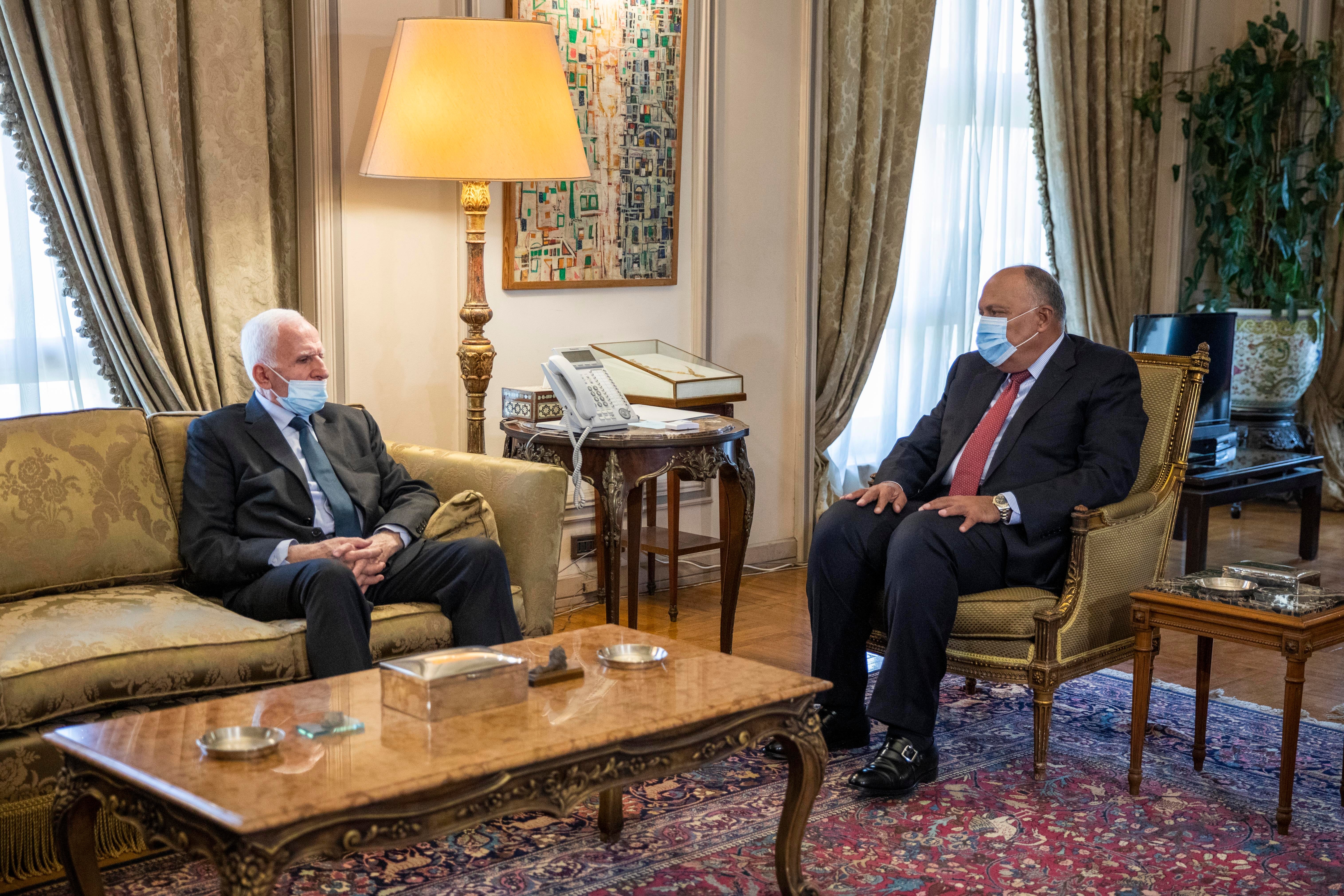Mediating in Gaza conflict, Egypt seeks broader influence
Egypt has rushed to try to broker a cease-fire deal between Israel and Hamas while also trying to prove itself to the Biden administration and the world as the main mediator in a conflict that threatens to worsen

Your support helps us to tell the story
From reproductive rights to climate change to Big Tech, The Independent is on the ground when the story is developing. Whether it's investigating the financials of Elon Musk's pro-Trump PAC or producing our latest documentary, 'The A Word', which shines a light on the American women fighting for reproductive rights, we know how important it is to parse out the facts from the messaging.
At such a critical moment in US history, we need reporters on the ground. Your donation allows us to keep sending journalists to speak to both sides of the story.
The Independent is trusted by Americans across the entire political spectrum. And unlike many other quality news outlets, we choose not to lock Americans out of our reporting and analysis with paywalls. We believe quality journalism should be available to everyone, paid for by those who can afford it.
Your support makes all the difference.Egypt is trying to prove itself to the world once again as an indispensable mediator as it rushes to broker a cease-fire in the Israel-Hamas war, the fourth in just over a decade.
It’s the latest instance in which Egypt has served as a mediator between Israel and Gaza’s ruling militant Hamas group. Egypt borders both Israel and the Gaza Strip, and has been a key player since Israel withdrew troops from Gaza in 2005 and Hamas seized the territory in 2007.
With the latest war in its 11th day on Thursday, Egypt was working to finalize a cease-fire deal that could take effect as soon as the early hours of Friday, an Egyptian intelligence official said.
“By virtue of geography and its ties to all parties, Egypt is unique in this matter,” said Michael Hanna, the U.S. program director at the International Crisis Group. “And of course, it seeks to demonstrate its regional relevance and influence to all parties concerned, including the United States.”
Successful Egyptian mediation could help improve the strained ties between President Abdel Fattah el-Sissi's government and the Biden administration. Four months after his election, President Joe Biden still has not spoken with the Egyptian leader, who forged close ties with former President Donald Trump. Biden has raised concern over the Egyptian government’s human rights record under el-Sissi.
A diplomatic win could also gain Egypt some regional prestige in its rivalries, including with Turkey and the United Arab Emirates. The UAE last year moved to establish ties with Israel.
Egypt fought four wars with Israel between 1948 to 1973. The two former enemies normalized ties in 1979, and since then have increasingly cooperated on security issues. Israel has praised el-Sissi’s government for its help, and in turn allowed Egyptian forces greater freedom near the border to fight militants in Sinai.
Egypt’s ties with Hamas have at times hung by a thread. Egypt, along with Israel, continues to enforce a blockade that has devastated the Gazan economy. Hamas is the militant Palestinian branch of the Muslim Brotherhood, a political Islamic movement banned in Egypt, and Egypt's pro-government media often depict Hamas as a threat. Still, Egypt has repeatedly been an intermediator for Hamas, working out cease-fires in the previous three Hamas-Israel conflicts and easing other crises with Israel.
Egypt also walks a careful line with its own citizens, who deeply oppose Israel’s policies toward the Palestinians. As Egyptian and Israeli officials quietly collaborate on security, the government rarely is strongly critical of Israel in public — though it gives free rein to prominent personalities aligned with the government to denounce Israel or portray it as the enemy in the media.
Popular culture follows suit. Last year, a futuristic Egyptian television drama, set in 2120, drew criticism from Israel for predicting its demise by then. It had been approved by government censors. As tensions increased last week, Egyptian singers released a song called “We redeem you, Palestine,” in the techno-splashed rap-like style known as Mahraganat. Also, many Egyptians have taken to social media to express solidarity with Gaza.
Egypt’s government, which has banned any protests, has not allowed pro-Palestinian rallies. But its official rhetoric this time has been more critical of Israel — from a government-aligned cleric’s sermon to statements by Foreign Minister Sameh Shoukry. The rapidly increasing death toll on the Gaza side has lent them weight. The fighting has killed at least 230 Palestinians, including 65 children, according to Gaza health officials, while 12 people in Israel have been killed by rockets from Gaza.
El-Sissi has also promised $500 million in aid for Gaza to rebuild, as well as eased its blockade to send ambulances and supplies. A few Gaza residents have been transported to Egyptian hospitals for treatment.
Mustafa Kamel el-Sayyed, professor of political science at the Cairo University, said that Egypt could score points both with President Joe Biden and with its own people by being seen as a peacemaker and as championing the Palestinian cause.
Hossam Bahgat, founder and director of the Egyptian Initiative for Personal Rights, said the new Palestinian initiative is an also an opportunity to call for the release of two Egyptian pro-Palestinian activists, Ramy Shaath and Mohamed Masry, who were arrested two years ago and have remained detained without trial since.
They are among thousands who have been held without due process in Egypt's widescale crackdown on personal freedoms. Shaath is the son of Nabil Shaath, an adviser to Palestinian President Mahmoud Abbas.